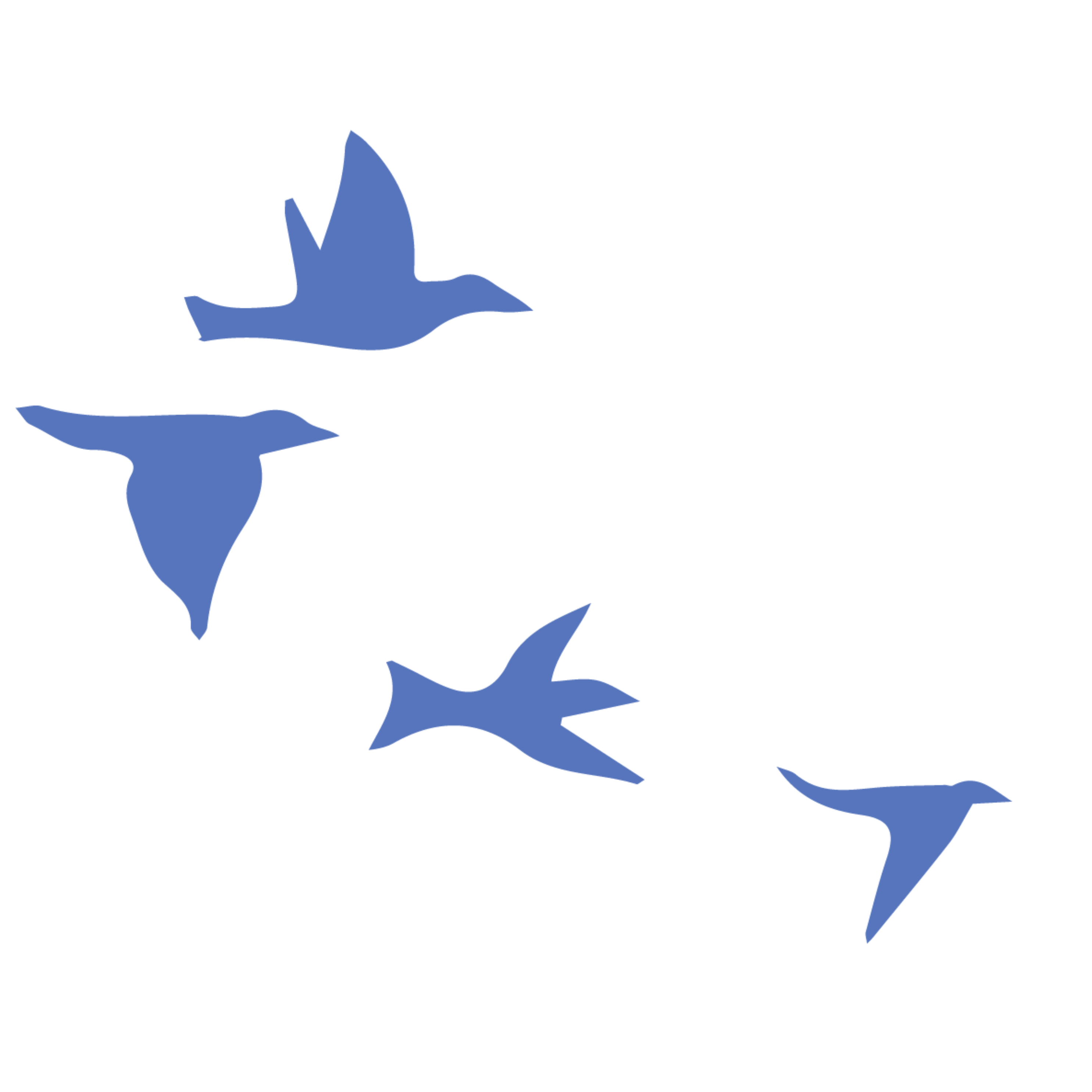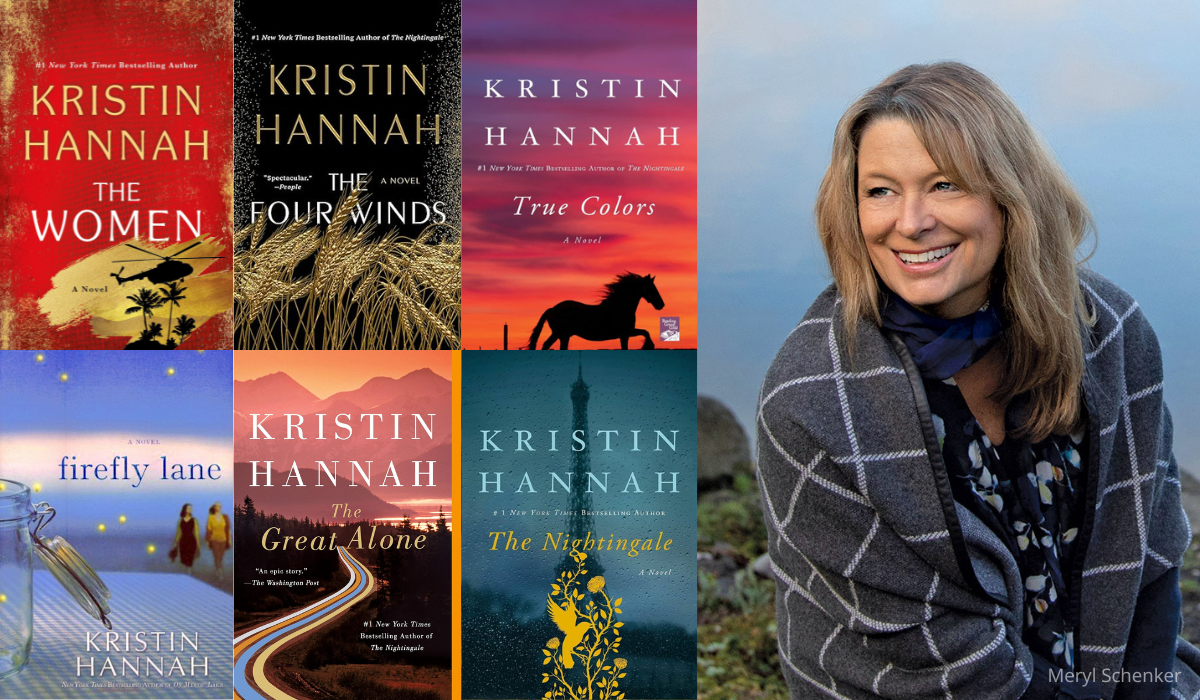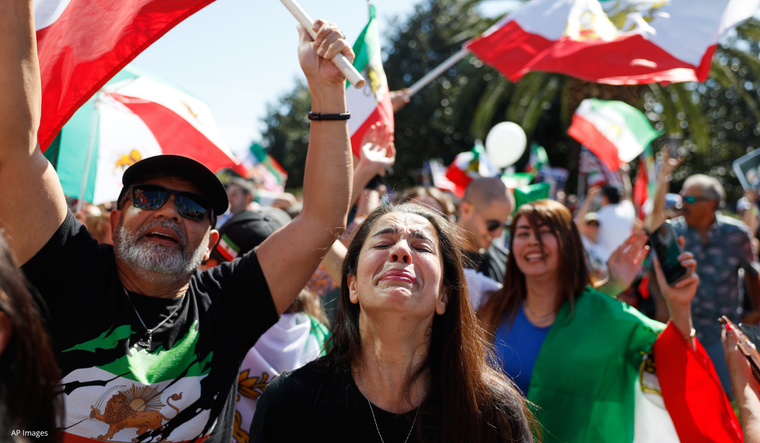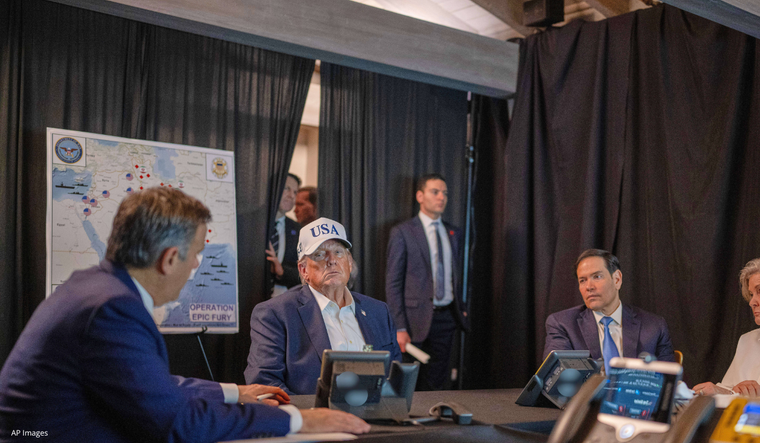Kristin Hannah’s Novels Have Touched Millions

Kristin Hannah was 24 years old and in her third year of law school when her mother was dying of breast cancer. Every day after school, Kristin would go to the hospital to spend time with her mom. During one of those visits, Kristin complained about a class she was taking.
“Don’t worry, you’re going to be a writer anyway,” her mom said—a statement that shocked Kristin, who’d never expressed an interest in creative writing. “You know what?” her mom went on. “We should write a book together.”
And so, they got to work imagining a historical romance, set in 18th century Scotland. Kristin wrote the first nine pages the day her mom died.
“She didn’t get to read it, but I did get to lean down and whisper, ‘Hey, I started our book,’” Kristin tells The Sunday Paper.
It would be a few more years before Kristin would go revisit those pages. She graduated, passed the bar, and started practicing law. But then, she was put on bed rest early on in her pregnancy with her son. “This was pre-internet, pre-streaming,” says Kristin. “I was either at the hospital or at home with nothing to do.” When her husband suggested she revisit the book she and her mom were going to write, she did.
Thankfully, there was no algorithm back then to capture Kristin’s attention. She has since published 25 books, most of which have achieved bestseller status and have nestled into the hearts of her readers—especially women.
“I think at this moment in time, where our country is so divided, my novels and novels like them remind women of how much we share and how much we need to bond together instead of splinter apart,” says Kristin.
This week, we sat down with the beloved author to learn more about her, how she creates characters that help so many of us feel seen, the summer reads she can’t wait to dive into next, and more.
A CONVERSATION WITH KRISTIN HANNAH
You’ve written so many emotional and empowering stories. What draws you to the kinds of characters and themes you explore in your novels?
I wrote my first novel when I was 27 years old. My entire adult life—my coming of age, wifehood, motherhood, the arc of my life—is anchored in writing. I began writing stories that interested me. Love stories originally and then stories about women my age who were facing issues that that my generation was facing, whether it was being an at-home mom or a working mom or not being a mom. Whatever struggles and challenges that we faced, I wrote about those. I didn’t realize until Firefly Lane, when I was 40, that I was writing these deeply emotional novels about other women coming of age and other women facing the challenges that I had faced.
I am drawn to the stories of women surviving and overcoming challenges, finding their voices, and discovering who they are. And when I got old enough to do all those things for myself—to find my voice and to find the strength to stand up for what I believed in—that dovetailed with my exploration of women in history and women’s lost stories.
Do you think you wrote your way into finding your voice?
I think I wrote my way in, and I lived my way in. I couldn’t have written a story like The Women when I was younger. I needed to experience a little bit more of the world. In fact, I first pitched this book in 1997. I said to my then editor, “I want to write a book about the Vietnam War.” And she said with great respect and kindness, “You’re not ready. You’re not good enough. And no one wants to read about the Vietnam War.”
It would not have been the same novel if I wrote it in 1997. I think it’s because I have a lot more life and understanding and empathy and compassion at this age than I did back then.
Have your characters ever taught you something new about yourself?
I think, in a way, the argument can be made that there are pieces of every book that are just straight up therapy for me—that are me working through my issues and my opinions. Sometimes I write novels because I want to understand something that I don’t understand, and working it through fictionally gives me the tools I need to make the kind of moral, philosophical, or intellectual decisions that I have to make.
In a way, my characters are all me and none of them are me.
The Women is one of the books that is further from me in the sense that Frankie and the other women have very different backgrounds to me, they made very different life choices, and they faced very different arcs and challenges than I did. But I did grow up during the Vietnam era. This book was originally inspired by a friendship I had when I was 10 years old. My best friend’s dad was shot down and was lost, and I wore his POW bracelet for decades. Long after the war was over, I saw his name on that bracelet every single day. When the internet came into existence, one of the first things I did was look for him to see if he had come home, and he had not. I think part of writing The Women was me wanting to understand that era. I had seen how we treated the vets when they came home, and that left a profound impact on me as a young girl.
A lot of people want to write. What do you say to those who want to write a book?
I truly believe that you are not given the desire to do a thing that you are incapable of doing. That being said, writing requires commitment and dedication.
For a long time, I was writing at 5 a.m., I was writing at nap time, I was writing in the carpool lane. You have to be willing to put in the hard work when it’s hard.
Do you write, as Anne Lamott puts it, “shitty first drafts?”
Oh yes! I write shitty first, second, third, fourth, and fifth drafts. But every draft teaches me something. I write a lot of drafts where I throw away a lot of what I’ve already done.
Your fans say they feel seen in your stories. Why do you think this is?
I think it’s because so many of us women regardless of where we live, what we believe in, what we do for a living, what we’ve chosen in our lives, we’re still ultimately living a very close version of the same life. There are these issues and moments that women experience and experience profoundly—whether it’s the loss of a parent, falling in love, falling out of love, facing an illness, losing a child, whatever it is, these are the things that connect us emotionally.
One of the things that’s been really surprising to me in the last few years as I started writing women’s lost stories and giving voices to women from the past who had been forgotten is that in writing their stories, I thought that I was speaking to the women of my generation. I felt that I understood us, that I had something to say to us, and that we had this commonality that would bring them to my work and make them feel it very deeply.
But what I have found is that younger women and older women feel the same way about these books. That has really convinced me that it doesn’t matter how old you are or what your precise life experiences are, we all understand pain, we understand being voiceless, and we understand being overlooked.
Do you have a favorite (book) child?
Yes! I am not one of those writers who think they’re all the best. I do my best, I try my best, and I work equally hard on every novel, and some simply come out better. My favorite at the moment is The Women. I suspect that will be true for a while. Before that, it was The Nightingale. And before that, it was Winter Garden.
What was the last book you couldn’t put down?
All the Sinners Bleed by S.A. Cosby
Atmosphere by Taylor Jenkins Reid
The View from Lake Como by Adriana Trigiani
What’s the next book you can’t wait to read?
King of Ashes by S.A. Cosby
Typewriter Beach by Meg Waite Clayton
We All Live Here by Jojo Moyes
Can you talk about what you’re working on next?
I am probably halfway through a new book, which I cannot talk about. I’m assuming it will come out in February 2027, because I’ve published a book every three years so far. I got thrown off schedule because The Women was a lot! One of the things about The Women that was so interesting and unexpected to me is how many people responded to the era. I was concerned, as were many people, that the Vietnam War was not something that people—and especially women—were going to respond to.
I was writing it at a time that felt very much like the Vietnam era in terms of the division in the country and our political divide. I wondered if this story of the nurses and their struggles, which I feel are so important in the historical landscape, would land with people. And it not only landed, but it exploded. What I hear from vets and their families and the nurses, and also the nurses who worked in the pandemic and so many groups, is that they feel seen.
Kristin Hannah is the #1 New York Times bestselling author of many acclaimed novels, including The Women, The Great Alone, The Nightingale, and Magic Hour. She and her husband live in the Pacific Northwest.
Please note that we may receive affiliate commissions from the sales of linked products.



